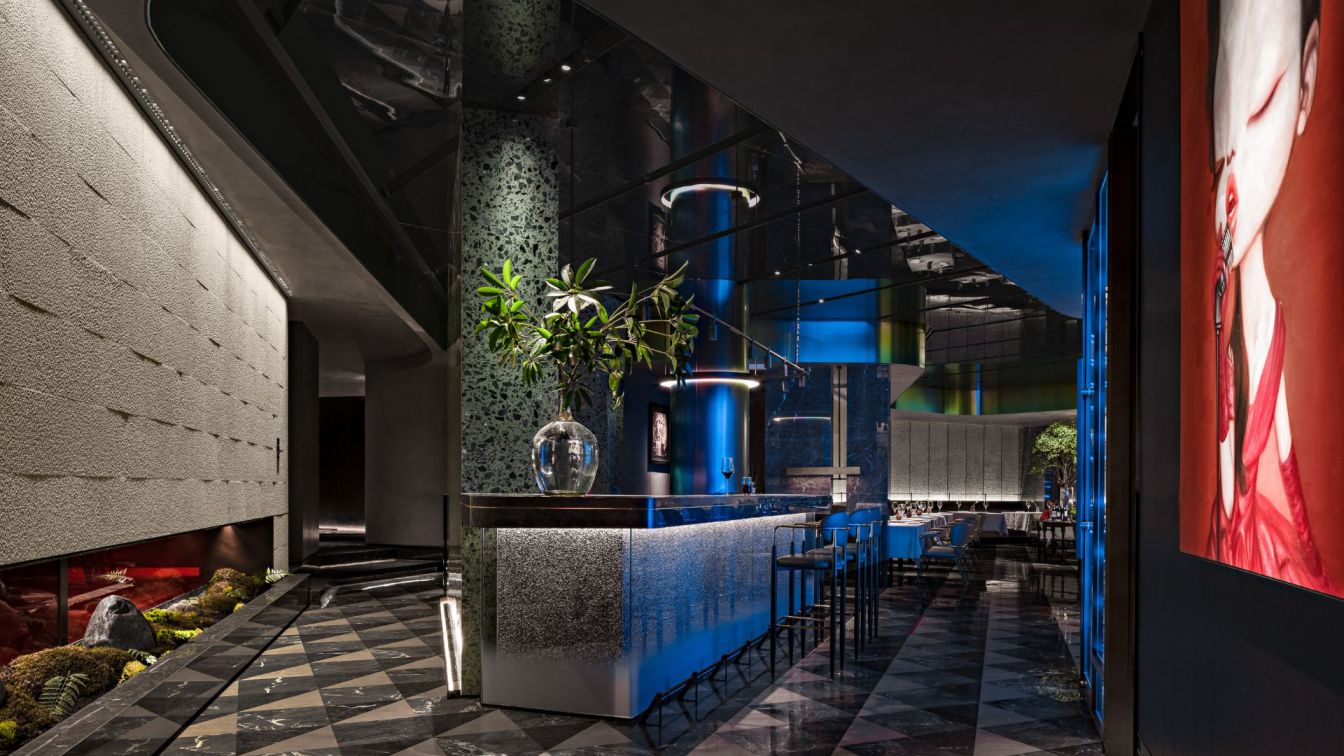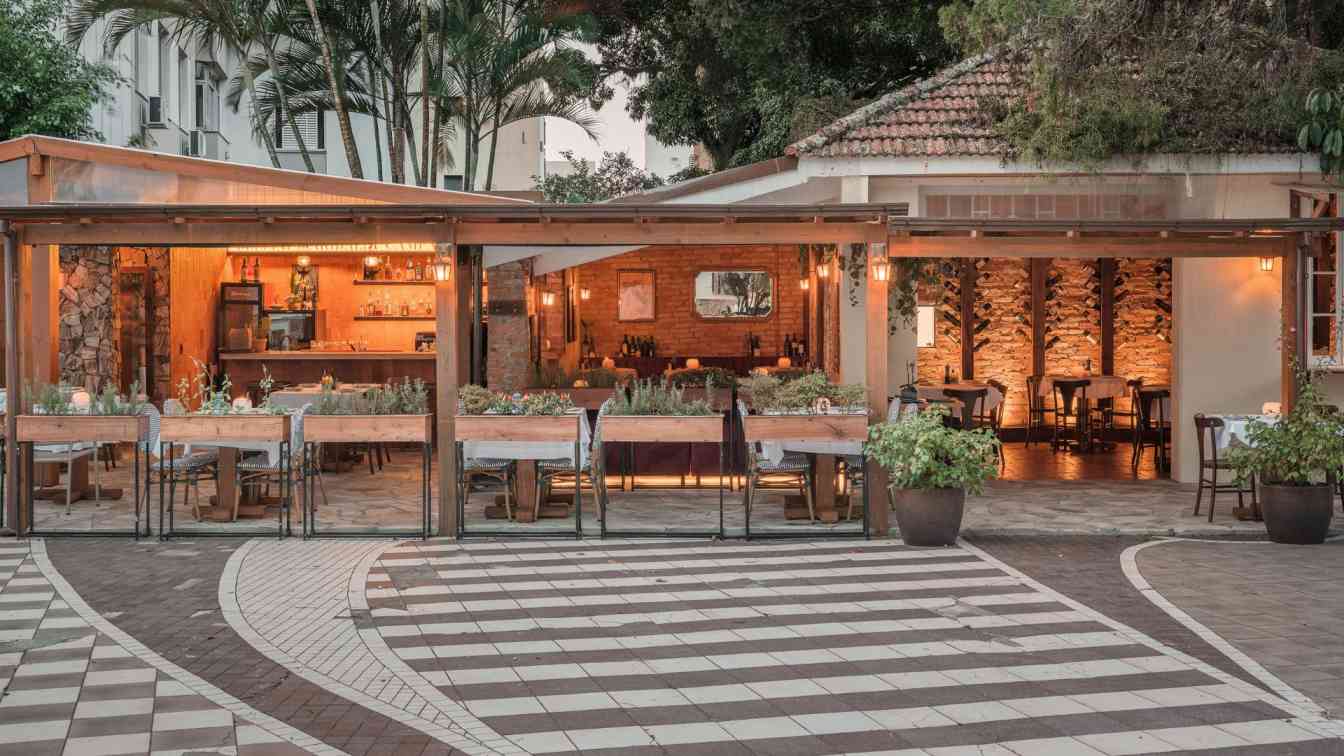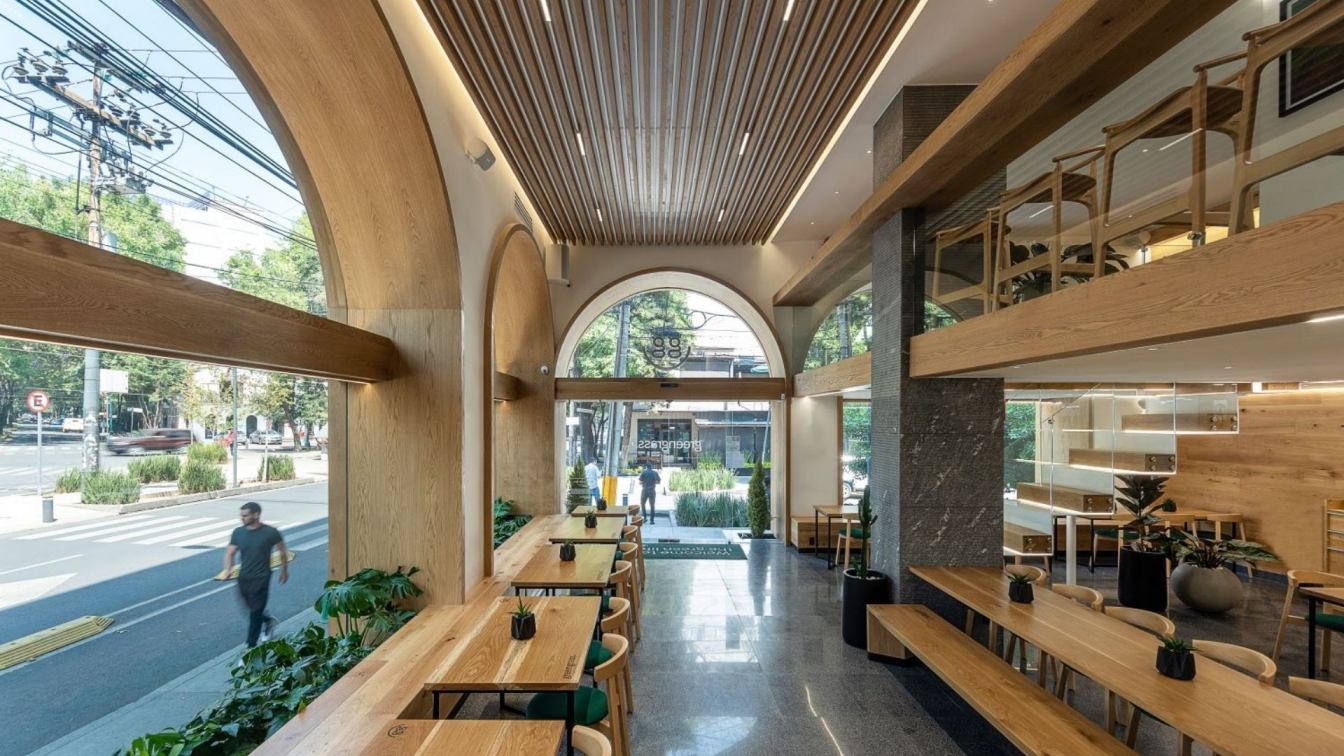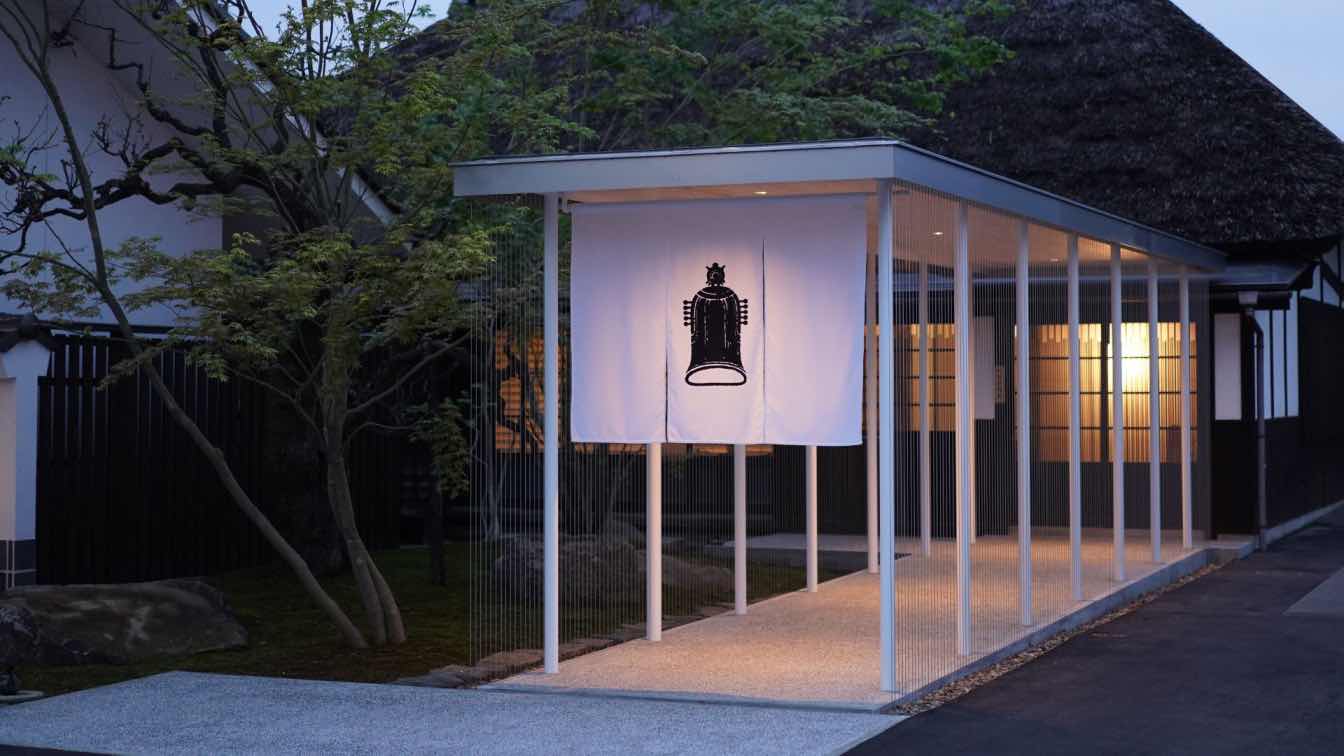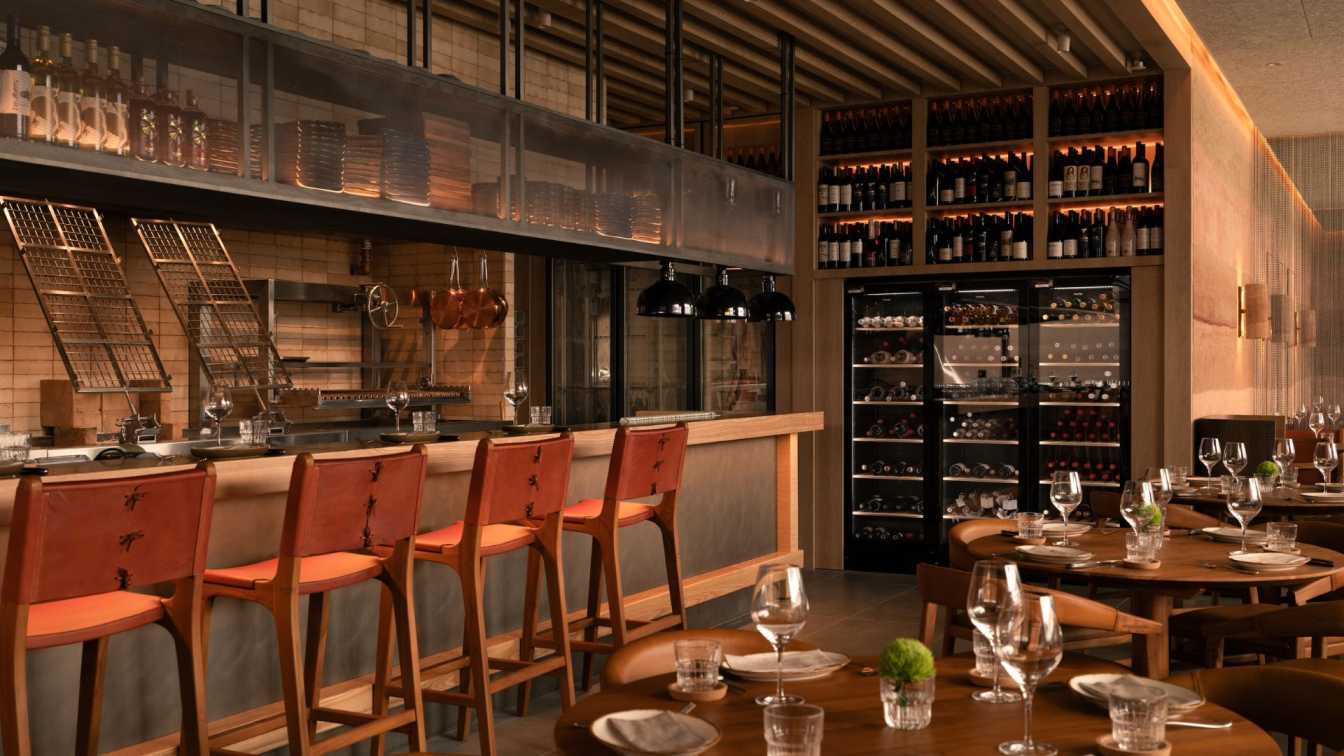IN•X Design: Exclusive: W branch of Xi’an of Shanghai Yen.
Strategic Dining franchise
We discover the consistency between the brand and urban culture, and interpret it through space, thus creating unique local sensation for Shanghai Yen, creating active new market.
In the 20th century, after decades of development, Shanghai cuisines have evolved from rustic dishes to exalted culinary products. Various famous chefs have appeared along with them. Meanwhile, Xi’an has gone through swift changes, and could no longer be simply described as ancient city.
In April 2022, W Hotel of Xi’an had granted Benbang cuisine a new spotlight.
Shanghai Yen, the brand that highlights Benbang cuisine in Xi’an, has entered the northern market. Wu Wei, the designer of IN.X, integrates trend, enthusiasm, and innovation with the rich background of Xi’an. Thus Shanghai Yean and Xi’an unites in one lively scenery.
The current flows smoothly in water
In the business area of W Hotel, Shanghai Yen occupies 567 square meter. Its bronze signboard shines up the incoming guests who enter through the gates. The modern sense of Shanghai Yen has dominated the scenery.
The blazing lights encapsulates blocks along the corridors and cellar window. One may have a glimpse of the corner of waterside bar with moving lights. A T-shaped corridor highlights the route within, guiding the guests toward different scenes. The designer uses the circular waterside bar for organizing the traffic flow of guests, dividing the wide seat area and independent booths behind the restaurant.
The circular bar utilizes the overall shape of the hall, while eradicating the irregularity within the establishment, making it resemble a isle in waters. Guests would not be able to peer through its secrets, but they may find them out as long as they travel with the flow. The light and fog moves along the wall, while green terrazzo and grey blocks reflect the dazzling lights. The ceiling has eradicated the borders overhead, and stainless steel pillars further enhances the futuristic feeling of the view. Modern chilliness has been affected by the flow of color, which showcases human characteristics.

Drift between life and drowsiness
Walking by the door and turn right along the waterside bar, one may perceive a French window which connects the open seats area with outdoor area. A small fountain bubbles audibly on the terrazzo stage. The flowing pattern of water is even clearer in the dry northern city. The reflective ceiling and parquetry floor creates a sensation of dignity. The staid gray base reflects delicate details of its material. If the guests forget that they are in Xi’an, the natural tone of the background color would bring their mind back the ancient city in an instant.
After one enters the open seat area, then moves to the bar, one would notice that the corridor has become narrow once again. Wet moss grow under the dim lights, whereas the hall waits quietly for the scenery to change.
When one enters the VIP room, the light becomes dimmer. Modern sculptures and portrayals of Tang maidens highlight the scene, uniting thousands years of history and bright modernity, signifying how resolute people transform the past into wise and joyful modern life.
Strategy First, Design Follows
“What should Shanghai Yen be in Xi’an?”
Wu proposed the question in the initial phase of design. As an outsider, Shanghai Yen could go for both local or unique, but there’s only one correct answer.
We unravel the essence of Shanghai Yen, and connects its cuisine with the past. Despite it might not conquer the grandness of the ancient city, we still could compare them during transitory period. The trend and innovation of Yen blends with the age and scope of Xi’an. The seemingly opposite factors generate a spark, and create a beautiful new result.
In an advanced city and age, people and their culture prosper lively, just as the Chang’an in begone days.




































